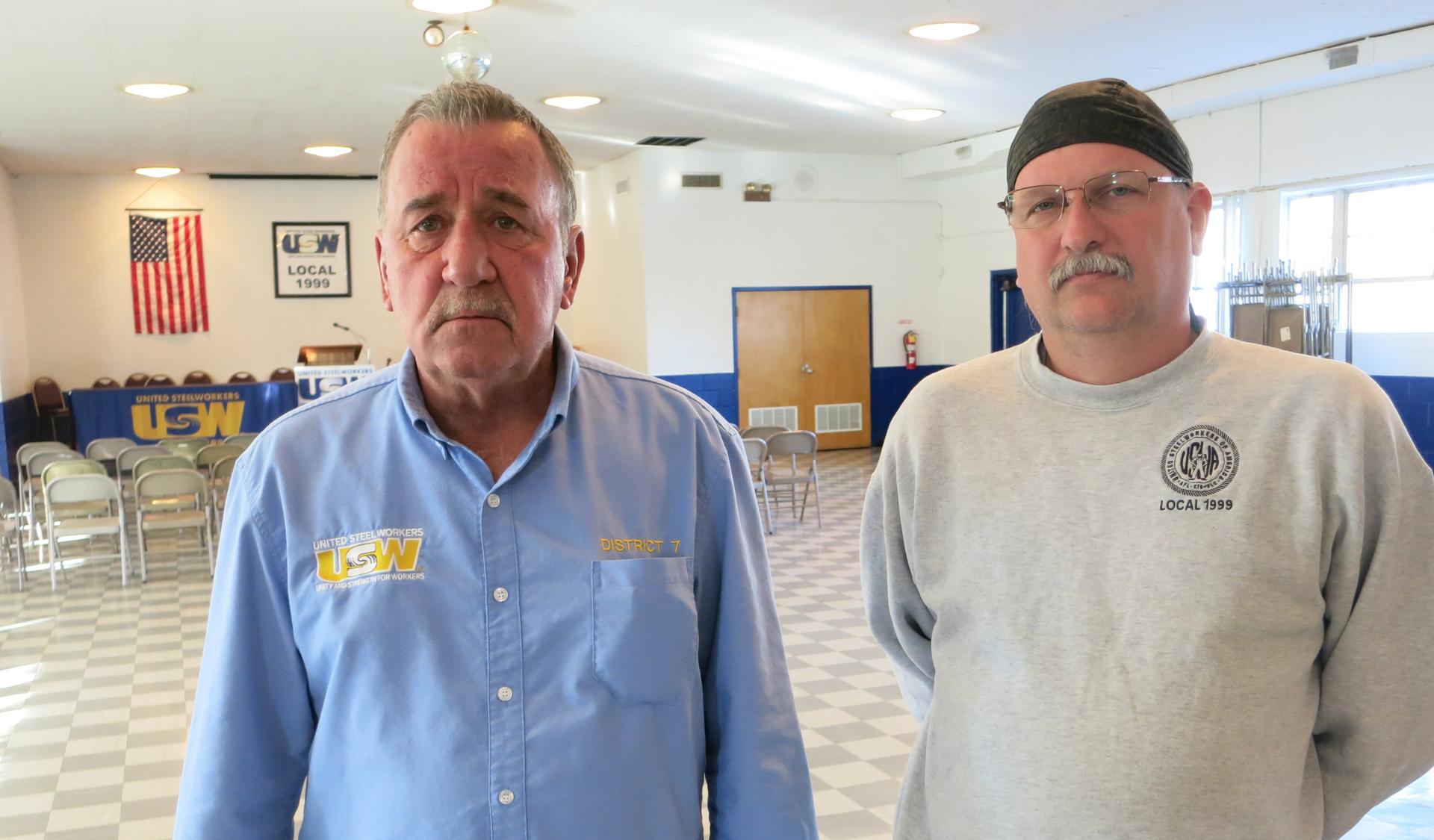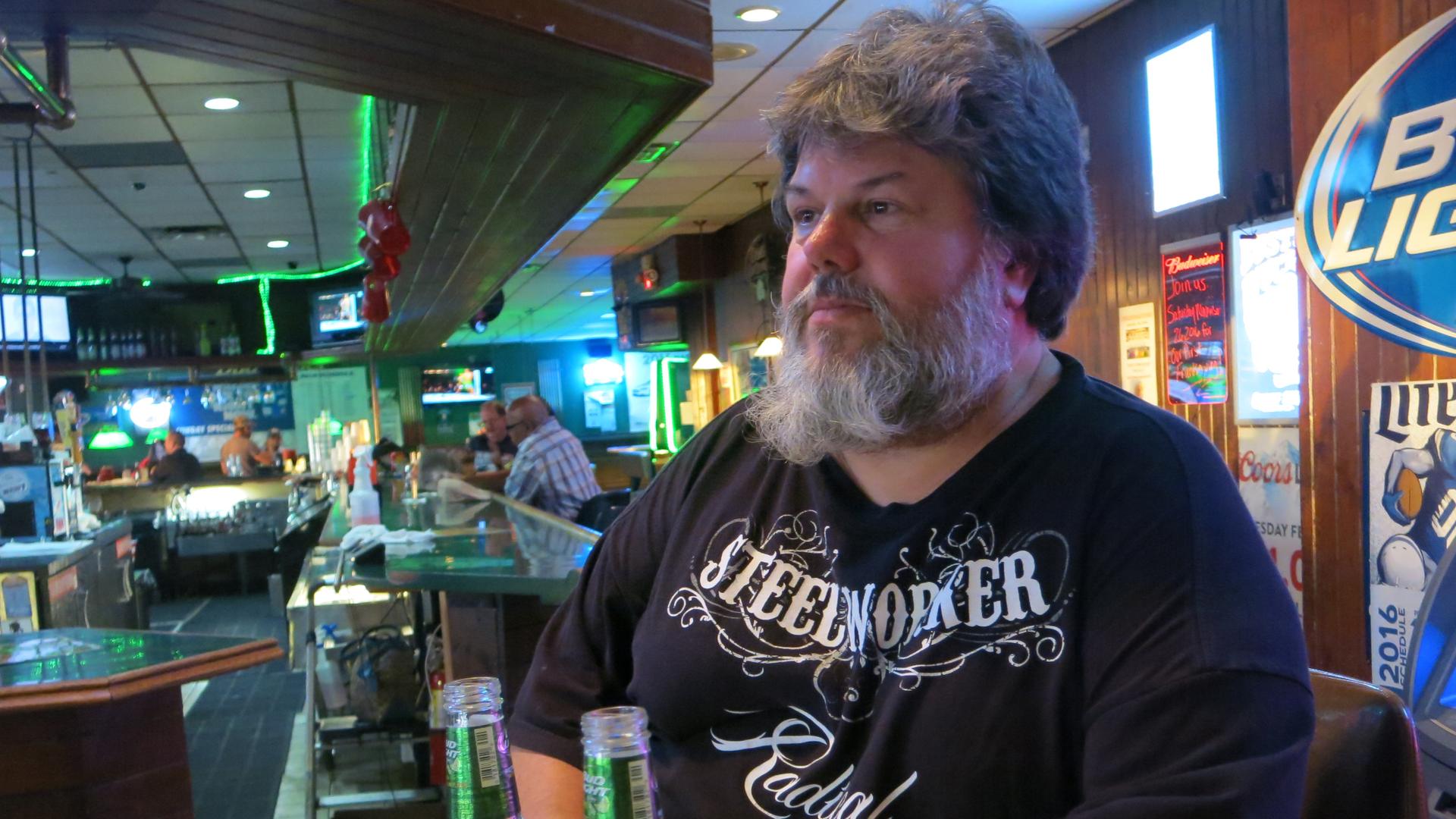Trump gave a ‘100 percent’ guarantee that their jobs wouldn’t go to Mexico. Now, Indiana workers expect him to deliver.
Mike Fugate crossed party lines to vote for Trump. He hopes the president-elect can save his Indiana job from going to Mexico.
If you were to close your eyes and imagine the stereotypical guy in the Rust Belt who got Donald Trump elected, someone like Mike Fugate might come to mind.
He's a middle-aged white man with a blue-collar job. And he's a big fan of Trump — but with a twist.
“I’ve been a registered Democrat my whole life, always voted Democratic,” says Fugate. “Not this time.”
I met Fugate at Sully’s Bar and Grill, an Indianapolis joint just across the way from the Carrier factory where they’ve built heating and cooling systems since the 1950s. Fugate has worked there for 25 years.
Carrier’s parent company, United Technologies, reported sales of $56 billion and $4 billion in net income last year. But in February, the company said it was laying off 1,400 workers and shifting production to Monterrey, Mexico.
“They’re shafting us,” says Fugate. “I think they don’t have any concerns, it’s all about shareholders' profit. And going to Mexico — $20 an hour to $3 an hour — that says it all right there.”
United Technologies turned down my interview request. But they did send an email highlighting the severance package being offered to workers — which includes things like extended health care for six months and education benefits for up to four years for job retraining. Carrier workers I met, say: Thanks, but I want my job. Carrier will start moving to Mexico in June 2017 and expects to complete the transfer by 2019.
Many workers in Indianapolis put their faith in Trump’s tough talk against trade deals and globalization. It was a strong, populist message that resonated. When Trump came to Indiana last spring, he gave a “100 percent guarantee” that the Carrier factory would stay open under a Trump presidency. He said he’d keep jobs in the Midwest by slapping a 35 percent tax on Carrier products coming back from Mexico.
About that, “when you guarantee something 100 percent, I like those odds,” says Chuck Jones, president of the United Steelworkers local 1999. “So we’re going to hold him accountable to his campaign promises.”
Jones didn’t vote for Trump, and the United Steelworkers endorsed Hillary Clinton. Still, Jones says a lot of his workers got swept up by Trump’s anti-trade messages.
“If it wasn’t Trump, if Captain Kangaroo would’ve run, he might’ve had a chance of winning because people were so fed up with the establishment politics,” says Jones. “They were looking for something different, and it happened to be Trump.”
But Jones thinks Trump was just making campaign promises that he can’t keep.
“You know, time will tell. He’s going to be the president, whether we like it or not, and I hope he is successful, or it will be devastating on this country.”

In order for Trump to place a tariff on heating and cooling products made in Mexico coming to the US, first, he’d have to withdraw from NAFTA, the North American Free Trade Agreement between the US, Canada and Mexico. The treaty was formally signed into agreement by President Bill Clinton in 1994, but it was negotiated by Republican President George H.W. Bush.
A president could technically withdraw from the treaty without congressional approval, but many economists strongly agree that scrapping NAFTA could have a devastating impact on the economies of all three nations.
“That’s not going to save jobs,” says Mike Hicks at Ball State University in Muncie, Indiana. “The problem is that, particularly in the Midwest, we’re huge exporters, we’re net exporters. And so you put a tariff in place, assuming that any other country decides to place a similar tariff on us, then the net effect is going to be a huge recession here in the Midwest.”
“Trump would be encouraging huge costs,” says economist Lee Branstetter at Carnegie Mellon University in Pittsburgh. “US corporations have invested billions in both [Canada and Mexico] to take advantage of NAFTA. Those investments would have to be written off at enormous costs. With costs that big, the companies would be firing some of their workers.”
Trump could also renegotiate the terms of NAFTA, but he would need to persuade Congress, as well as Canada and Mexico, to go along with any changes. And remember, congressional Republicans largely support free trade agreements.
“How does Trump plan to renegotiate NAFTA, what would he change? He’s never given us any details. So we have no idea, what, if anything, he has in mind,” says Branstetter.
Mike Hicks says that when politicians talk about getting tough on trade today, it’s often just that — talk.
It resonates, though: 5.5 million American manufacturing jobs vanished between the years 2000 and 2010. But Hicks’ research indicates that only about 12 percent of those losses can be pinned to increased foreign trade. The rest of the jobs disappeared due to higher efficiency; robots and computers, as well as just-in-time assembly management, have made manufacturing vastly more efficient.
Consider an American car built in the 1970s. “What took 1,000 workers to manufacture then, we can now do with about 250 men and women,” says Hicks.
New jobs, in new industries, have been created to fill the void of manufacturing job losses in the Midwest. And many of those jobs were created due to increased trade. Think about all the jobs in transport. Today, Indiana has a healthy unemployment rate: 4.4 percent.
But here’s the problem: Manufacturing jobs typically pay better than many new jobs that have been created in the past 20 years. And for those workers who have seen their jobs transferred to Mexico, the pain and disruption are very real.
Back at Sully’s, Trump supporter Paul Roell could soon be out of a job with Carrier. He’s worked there for 17 years and has five children to support.
“I’ve been looking around, most other places around here pay $13 to $15 an hour,” says Roell, who currently earns $23.83 an hour. “I can always get two jobs to make the same income I already make.”
I asked Roell, who typically votes Republican: What was the top thing on your mind when you voted for Trump?
“The top thing was Carrier, my job. I wanted to make sure I was still going to be able to still support my family. I feel like [Trump] is the only candidate who really put our name out there during the debates. And he’s giving us hope that he’s going to save our jobs,” he says. “I believe he has the potential to as long as he can get Congress to work with him on it.”
Mike Fugate is less optimistic. He thinks Carrier is as good as gone for Mexico.
“Yeah, I think it’s a done deal,” he says.
I ask him, if he thinks it’s "a done deal," does that imply that he doesn’t believe Trump when he says he’s going to save his job?
After a long pause, Fugate says, “All we can do is hope.”
